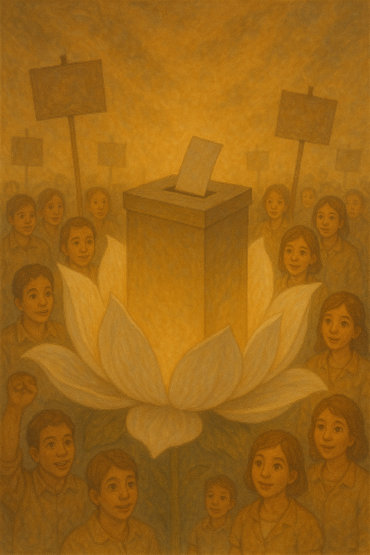Awakening Amid the Crisis of Democracy – Lessons from the March 15, 1960 Rigged Election
The Historical Significance of the March 15, 1960, Fraudulent Election
On March 15, 1960, an indelible stain was etched in the electoral history of the Republic of Korea. The 4th presidential and vice-presidential elections, conducted under the Syngman Rhee regime, were organized fraudulent elections that undermined the fundamentals of popular sovereignty and democracy. This was not merely a manipulation of votes it represented a violent betrayal of the will of the people by those in power, posing a serious challenge to the constitutional order of the Republic of Korea. At that time, the regime exploited the democratic institution of elections to extend its power and obscure its legitimacy. However, behind the scenes, vote rigging, ballot box swapping, monitoring of polling places, and even intimidation and violence against voters were mobilized while the outcomes had already been predetermined. The election became thoroughly distorted, not as a tool to reflect the will of the people but as a means to maintain power.
Resistance of the People and the April 19 Revolution
The people were angry about this injustice and oppression. In particular, students and citizens who sought the truth did not remain silent and took to the streets under the name of the April 19 Revolution. Nonviolent resistance spread nationwide, and finally, the dictatorship collapsed. The March 15 fraudulent election and the April 19 Revolution were a testament that South Korea did not abandon the ideal of democracy and that the people could ultimately reclaim that right.
Institutional advancements to prevent fraudulent elections
After April 19, our society implemented various institutional reforms to ensure the fairness and transparency of elections. We guaranteed the independence of the National Election Commission, strengthened the openness and security of the voting and counting procedures, and established a dense monitoring system. In particular, the public observation of the ballot counting process, control of the movement path of early voting boxes, and the preservation of voter ballot circulation records were significant advances in enhancing the trustworthiness of elections. However, contrary to what many might misunderstand, elections in South Korea are not conducted using 'electronic voting.' The marking ballots we use are filled out by hand on paper ballot sheets, and later, a person opens the ballot boxes and uses an 'electronic counting machine' to count the votes.
Manipulations and illegal activities that undermine fairness
Recently, certain political forces are trying to evade political responsibility for the election results by instilling distrust in the electoral process itself. They spread baseless conspiracy theories, illegally film inside polling places, and distort and edit ballot counting videos to disseminate false information. Some even go as far as deliberately removing ballots with the intent of shifting the illegality to the entire election. These actions are not merely legal violations but rather a strategic plan aimed at undermining the fairness and legitimacy of the election for political gain.
The Essence of Democracy
Democracy is not completed solely through constitutions and institutions. It is realized through the mature awareness of the people, trust in the community, and fact-based social discussions and participation. Elections are not merely an exercise of rights, but a political declaration expressing what kind of society we desire, as well as a responsible commitment of individuals toward the public good. Just as seen in the fraudulent elections of March 15th in the past, no matter how sophisticated the systems may be, without the vigilance, scrutiny, and participation of the citizens, the abuse of power can occur at any time.
History to Remember and the Path to the Future
We must never forget March 15, 1960. It is not just a memory of electoral fraud, but a living history that shows how a powerless people awakened and reclaimed their sovereignty in the face of power. Today, we have far more institutional mechanisms than in that era, yet we are simultaneously exposed to more sophisticated misinformation and political manipulation. Now, democracy is not merely a 'form' to be protected, but a 'culture' that we must cultivate together.

Post a Comment